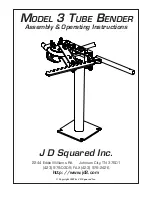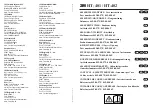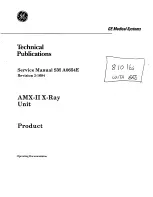
172-65441A-04 (JL14-X/JLH14-X/JLH14-B) 20 Jan 2021
4
Checking the Piping
Use only under conditions in which no water hammer will occur. The
impact of water hammer may damage the product, leading to fluid
discharge, which may cause burns or other injury.
CAUTION
Check to make sure that the pipes to be connected to the trap have been installed
properly.
1. Is the pipe diameter suitable?
2. Is the piping where the trap is to be installed horizontal?
3. Has sufficient space been secured for maintenance (refer to the
“Installation”
section)?
4. Have isolation valves been installed at the inlet and outlet? If the outlet is subject
to back pressure, has a check valve (TLV-CK) been installed?
5. Is the inlet pipe as short as possible, with as few bends as possible, and installed
so the liquid will flow naturally down into the trap?
6. Has the piping work been done correctly, as shown in the figures below?
Requirement
Correct
Incorrect
Install catchpot with the proper
diameter.
Diameter is too small.
Make sure the flow of
condensate is not obstructed.
Diameter is too small and inlet
protrudes into pipe interior.
To prevent rust and scale from
flowing into the trap, the inlet
pipe should be connected 25
–
50 mm
(1
– 2 in) above the base of the
T-pipe.
Rust and scale flow into the
trap with the condensate.
When installing on the blind
end, make sure the flow of
condensate is not obstructed.
Condensate collects in the
pipe.




































